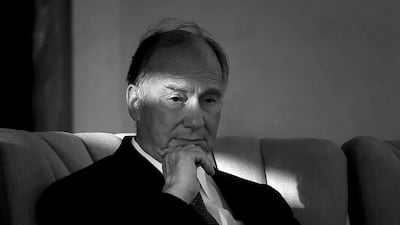Prince Karim Al Hussaini, better known as the Aga Khan IV, died aged 88 in Lisbon on Tuesday. The Aga Khan was the spiritual leader of the world’s Ismaili Muslims.
The Aga Khan was a high-profile figure in popular culture, his name synonymous with old-world glamour. Born in Switzerland in 1936, his high net worth and the trappings of his lifestyle – a royal title, an elite education, racing stables, private islands and private jets – provided European tabloids with ample fodder throughout his life. He was an Olympic skier, too, representing Iran at the 1964 Winter Games in Innsbruck, Austria.
All of that is worth mentioning at the outset, only so that it can be dispensed with quickly. In truth, it is a footnote to a more complicated, extraordinary and impactful life that combined religious duty with secular philanthropy on an unprecedented scale.
Today, the Aga Khan Development Network, grown out of a foundation started by Prince Karim in 1967, is one of the world’s largest development agencies, employing nearly 100,000 people and spending $1 billion a year in about 30 countries. While it is perhaps best known for its work in rural development and heritage restoration, the network operates non-denominational schools, universities, banks, hospitals, telecoms companies, power plants, airlines, hotels and industrial factories from northern Pakistan to Mali. Its footprint is greatest in places that are underserved by national aid agencies. In Burkina Faso, the network is the country’s largest private employer. In Kyrgyzstan, it operates the largest bank.
Prince Karim was a 20-year-old undergraduate studying Islamic history at Harvard University in 1957 when his grandfather, the previous spiritual leader of Ismaili Muslims, died and unexpectedly passed the title to Prince Karim in his will.
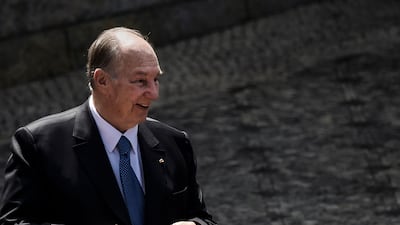
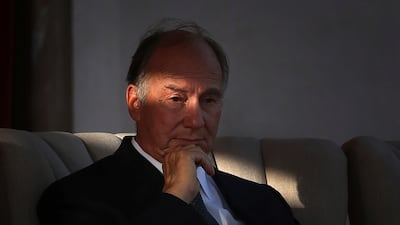
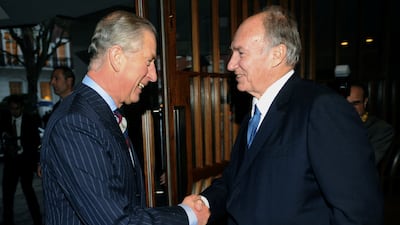
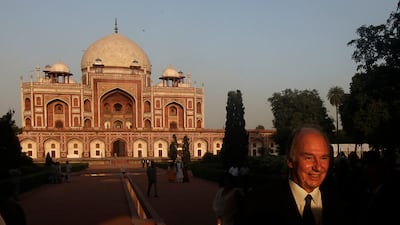



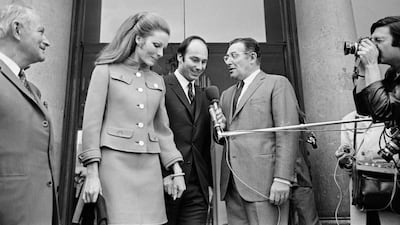
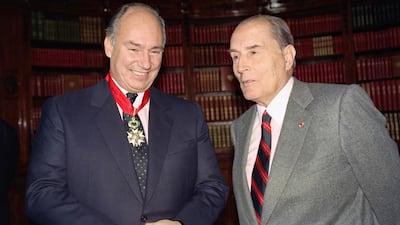
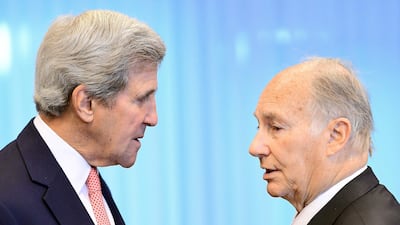
“Overnight, my whole life changed completely,” Prince Karim later told a journalist. "I woke up with serious responsibilities towards millions of other human beings. I knew I would have to abandon my hopes of studying for a doctorate in history.”
The leader’s role is to interpret the teachings of Islam for Ismaili Muslims. Prince Karim was obliged to carry out this responsibility even as he completed his undergraduate degree. Ismailis from western China to southern India, and eastern Iran to northern Syria, sent him letters or had his picture in their homes.
The burden was no doubt made greater by the Ismaili community’s geopolitical vulnerability. Despite there being 15 million Ismailis when Prince Karim became leader, the community was largely impoverished and spread thinly. This was a product of its dispersion after the fall of its empire, the Fatimid Caliphate, which founded Cairo, in the 11th century, persecution in the Levant during the Crusader period and massacres by the Mongols in the 13th century. By the 20th century, the Ismailis were religious and national minorities in the post-colonial nation states in which they lived. The community’s social insularity and practice of gender equality made it an object of suspicion for secular nationalists and religious extremists alike.
A duty to manage this situation against the volatility of the Cold War turned the young Aga Khan into a sort of statesman without a state. His emphasis on economic development helped his community to prosper, but its well-being grew more precarious. The Baathist revolution of 1963 divided the Ismailis of Syria along political fault lines. In 1972, Ugandan dictator Idi Amin expelled Ismailis and the Aga Khan had to arrange for the community to be moved to the West (mainly to Canada). The Iranian revolution in 1979 forced Ismailis in the country into permanent hiding – their houses of worship still operate under the radar.
Perhaps the most remarkable display of the Aga Khan’s leadership came amid Tajikistan’s civil war in the 1990s, which killed up to 150,000 people. The predominantly Ismaili region of Badakhshan, which is divided by a river from an Afghan province of the same name, became the primary staging ground for anti-communist opposition forces. Amid a siege that threatened to starve the population, the Aga Khan Foundation arranged a humanitarian corridor in co-operation with a US aid agency.
What few Badakhshan residents expected, however, was for the Aga Khan to land in a jet in one of the region’s remote valleys, in May 1995. A crowd of 50,000 of his followers gathered to sit on thousands of carpets hastily laid on the bare earth. Above, the roar of Russian attack helicopters had many in the crowd shuddering as they strained to hear the Aga Khan’s words. On the Afghan shore of the river, more Ismailis arrived to catch a glimpse of Prince Karim as he spoke.
Although Tajikistan’s civil war ended decades ago, the plight of Ismailis in the country remains. Since the start of a protest movement in 2021, the Tajik government has banned Ismaili religious symbols in public spaces and curbed the community’s prayer gatherings. Threats have proliferated elsewhere, too – Ismailis in Syria and Pakistan have been the victims of ISIS attacks, while the Taliban’s return to power in Afghanistan has spurred the community's retreat from public life.
It has been announced that his son, Rahim Al-Hussaini, would succeed him to become the Aga Khan V. He will be expected to give spiritual guidance in a changing world. The task is not getting any easier.
But if Prince Karim’s legacy is to serve as any guide, then optimism is warranted. His persistent faith in efforts to make peace, for the community and beyond, was best articulated in his address in Badakhshan that day in 1995. “Differences,” he said, “must be resolved within the ethic of our faith, through dialogue, through generosity, through forgiveness.”
